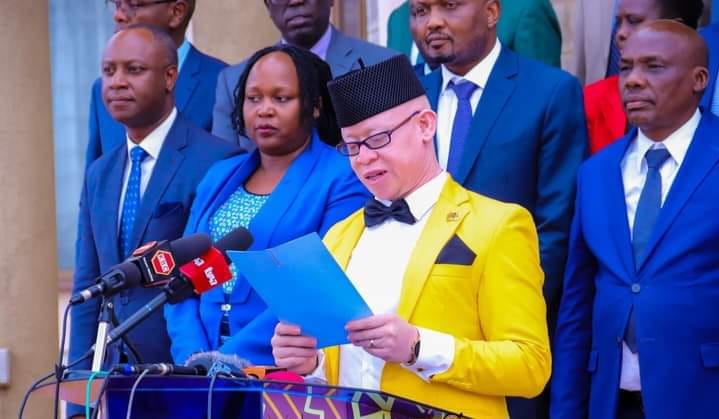Government’s Austerity Measures to Create Job Opportunities for Youth
3 min read
The Kenyan government has unveiled a series of austerity measures aimed at creating job opportunities for young people amidst challenging economic conditions. According to recent updates, 39,361 civil servants are set to retire over the next five years, opening up new positions for younger individuals in public service.
This strategic move is part of broader government reforms announced by President William Ruto on July 5, 2024. The President’s decision to expedite the retirement of civil servants who reach the age of 60 is designed to rejuvenate the public sector with younger talent, addressing both the need for fresh perspectives and economic empowerment for the youth.
Government Spokesperson Dr. Isaac Mwaura provided details on the implementation of these reforms during a press briefing in Nairobi. He noted that between September 13, 2023, and June 30, 2024, a total of 7,477 officers from various state departments, county executives, and county assemblies have already retired. The payroll data indicates that 43,976 officers aged 55 and above are expected to retire between 2024 and 2029, with 7,662 of them anticipated to retire in the current financial year.
Additionally, Dr. Mwaura revealed that 39,441 government employees are currently on contractual terms, with their contracts expiring on different dates. This situation creates approximately 46,838 new job opportunities for the youth, both on permanent and contractual bases, as these retirements and contract expirations occur.
In alignment with International Youth Day’s theme, “From Clicks to Progress: Youth Digital Pathways for Sustainable Development,” the government is emphasizing the role of digital innovation in fostering youth empowerment. Dr. Mwaura highlighted the government’s commitment to progressive youth empowerment through the BETA PLAN and the Broad-Based Government (BBG). This plan focuses on integrating digital technology and creative economies into national development.
Key achievements under the BETA PLAN’s Digital Superhighway and Creative Economy pillar include the digitalization of 17,668 government services, far surpassing the initial target of 5,000 services within five years. This advancement allows Kenyans to conduct online transactions more efficiently, reducing reliance on personal connections.
The government has also established 274 Digital Hubs across the country. For example, the Jitume hub at the Rift Valley Institute of Technology has created over 200 jobs and generated more than Sh3,000,000 in revenue. Furthermore, over 516,505 youth have been trained in digital skills, with initiatives like the Niche AI in Nakuru creating 152,711 digital jobs, significantly lowering unemployment rates.
To bridge the digital divide, the government has rolled out 1,360 Wi-Fi hotspots across 47 counties, providing free internet access that supports online business and job creation. Additionally, 1.5 million affordable smart-enabled phones have been made available, further enhancing connectivity and promoting digital inclusion.
The establishment of the Open University of Kenya at Konza Technopolis in October 2023 has expanded access to education, with 3,289 students enrolled—a 54 percent increase from the previous month. This institution not only provides educational opportunities but also creates jobs and facilitates knowledge transfer.
The government’s promise to deploy 100,000 kilometers of fiber optic cables is progressing well, with 10,219 kilometers already rolled out and integrated with KPLC’s electricity transmission system. This infrastructure aims to ensure widespread access to free and reliable Wi-Fi.
Dr. Mwaura also highlighted the transformation of the Postal Corporation of Kenya into an e-commerce and logistics hub, enabling young entrepreneurs to engage in online trading. The KBC Studio Mashinani Programme has supported the production of 1,018 audio-visual works, benefiting young artists and ICT solution providers through the Konza Cloud.
In agriculture, the government has focused on making farming more profitable by introducing modern risk management tools, including crop and livestock insurance schemes. Initiatives such as providing veterinary support, improving animal breeding, and subsidizing livestock feed have contributed to increased production and higher incomes for farmers.
The government has also enhanced the leather value chain by training stakeholders and improving hide quality, which supports local manufacturing and reduces reliance on imported goods. Dairy value chain development has been advanced through the installation of milk coolers and the provision of dairy goats to improve breeding.
Dr. Mwaura concluded by affirming the government’s dedication to creating equitable opportunities for youth and leveraging digital pathways to drive sustainable development and economic recovery.






